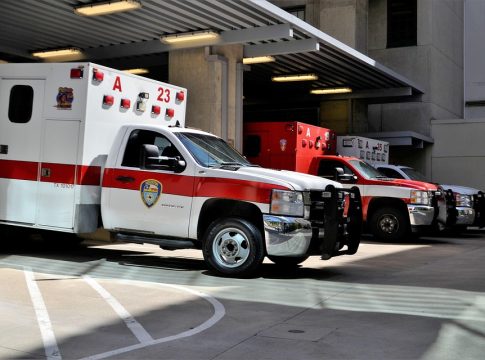Emergencies can strike at any moment, leaving us feeling anxious and unsure of how to respond. Whether it’s a natural disaster, a medical situation, or an unexpected accident, knowing how to act can make all the difference. With the right mindset and information, you can navigate these challenging circumstances more effectively. Understanding the most common mistakes people make during emergencies can help prepare you for the unexpected. Let’s dive into the nine common pitfalls to avoid, ensuring that you’re ready for whatever life tosses your way.
1. Ignoring Emergency Plans
Many people underestimate the importance of emergency plans. If an unexpected event occurs, the last thing you want is to scramble for information. Regularly review and update your family’s emergency plan. This includes familiarizing everyone with escape routes, meeting points, and communication protocols. A clear plan can prevent panic and confusion, turning a potential disaster into a manageable situation.
2. Overreacting
The adrenaline rush that comes with an emergency can lead to hasty, irrational decisions. Overreacting often results in a lack of control, which can exacerbate the situation. Stay calm and assess what’s happening before taking action. Practicing mindfulness or deep-breathing exercises can help maintain your composure during critical moments. Remember, taking a beat to think clearly can often lead to a better response.
3. Failing to Communicate
In chaotic situations, lack of communication can lead to misunderstandings and chaos. Ensure that everyone involved knows what to do and where to go. In a family or group setting, designate someone as the point of contact to relay information. This reduces the likelihood of misinformation spreading. Effective communication is key in emergencies; it allows for a cohesive response instead of a series of disconnected actions.
4. Neglecting Basic First Aid Skills
Not preparing for medical emergencies is a common mistake. Knowing basic first aid skills can mean the difference between life and death in various situations. Enroll in a first aid and CPR course to familiarize yourself with essential techniques. Practice makes perfect! Preparing in advance means you’ll feel more confident should a health crisis arise.
5. Not Staying Informed
Ignoring local updates can put you and your loved ones at significant risk. Whether it’s a weather-related emergency or an active shooter situation, staying informed is crucial. Sign up for emergency alerts in your area, and make use of apps and social media to remain in the loop. Knowledge is power, especially when every second counts. Make it a habit to check the news at least once a day, particularly in areas prone to disasters.
6. Disregarding Safety Gear
Many individuals neglect the importance of proper safety gear during emergencies. Whether it’s a sturdy pair of shoes, a flashlight, or a first-aid kit, having the right tools on hand can facilitate a smoother response. Create an emergency kit that’s easily accessible and ensure it’s well stocked. Include essential supplies like water, non-perishable food, and a whistle. Investing some time into preparation can save you a lot of trouble later.
7. Panicking About the Situation
Panic is often the natural response to emergencies, but it can cloud judgment and hamper your ability to act rationally. Instead of panicking, focus on what you can control. Try to detach emotionally from the situation for just a moment to weigh your options. Share this perspective with others around you, creating a more organized approach to the response. Collective calmness can foster a more efficient way of addressing the crisis at hand.
8. Relying Solely on Technology
In today’s digital age, many individuals rely entirely on technology during emergencies—like smartphones for information or GPS for navigation. However, technology can fail. Battery life can run low, devices can malfunction, or even networks may go down. Ensure you have a backup plan, such as printed maps, lists of important contacts, and emergency manuals. Don’t let your dependence on technology leave you stranded if things go awry.
9. Failing to Seek Help
A common mistake is believing you can handle every emergency by yourself. It’s vital to know when to call for help. If you’re in a situation that exceeds your capabilities, don’t hesitate to contact emergency services. They are trained to handle various emergencies and can bring expertise and resources that might not be available to you. Remember, it’s okay to ask for assistance!
Navigating Emergencies with Confidence
Avoiding these common mistakes can empower you to navigate emergencies more effectively. Preparation, clear communication, and the right mindset are invaluable tools in any crisis. By understanding and sidestepping these pitfalls, you’ll not only protect yourself but also those around you. As unforeseen events occur, remember: staying calm and collected is often more important than having all the answers.
Have you ever faced an emergency situation? How did you handle it? Share your experiences in the comments below!

Covers viral stories, pop culture, and breaking celebrity news.
Bio: Jamie has a sharp eye for what’s buzzing online, tracking social media trends and entertainment headlines around the clock.

